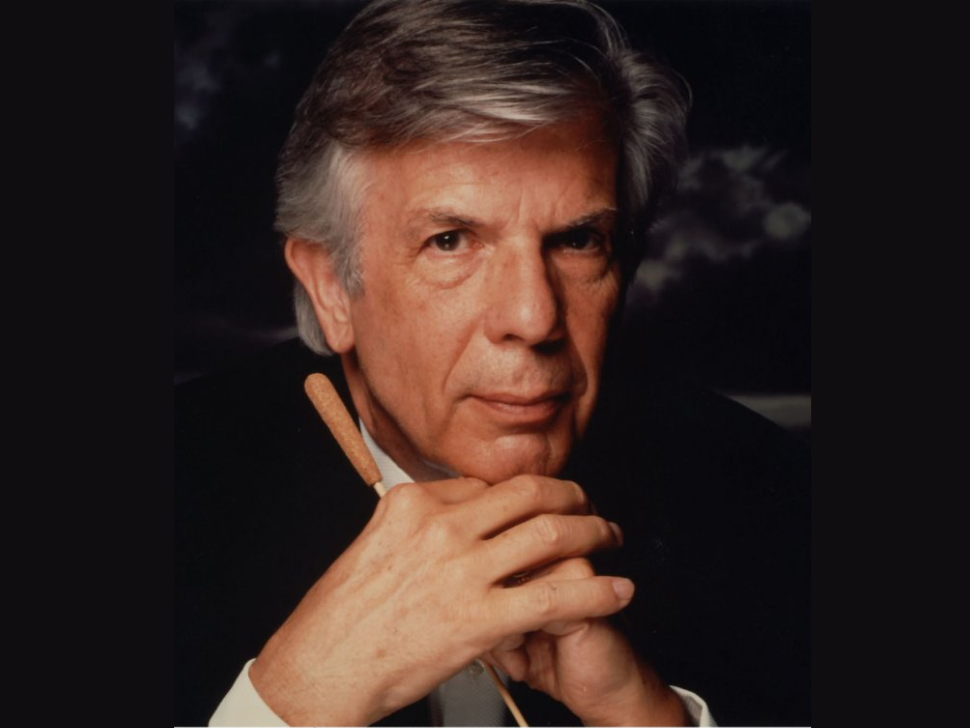A Week of Remembrance: Christoph von Dohnányi on Classic 107
This week, from September 8 to 12 at 1 PM, Classic 107 pays tribute to the late Christoph von Dohnányi, the German conductor who passed away this past weekend in Munich at the age of 95. During his 18-year tenure as Music Director of the Cleveland Orchestra (1984–2002), he transformed the ensemble into an internationally admired powerhouse. His tenure was marked by adventurous programming, more than a hundred recordings, and historic tours—including a groundbreaking debut in China. Time magazine even hailed the orchestra under his leadership as “the best band in the land.”
To honour his artistry and legacy, we’ll be featuring a recording conducted by Dohnányi each day this week. Alongside these works, we’ll explore the history and significance of each piece, showcasing how his interpretations captured both tradition and innovation.
Monday, September 8 – Mendelssohn’s Symphony No. 4, "Italian" (Vienna Philharmonic)
Felix Mendelssohn’s Italian Symphony was born of the composer’s travels through Italy in 1830–31. The work captures the warmth and vibrancy of the Italian landscape and spirit—its effervescent first movement evokes Mediterranean light, while the solemn second movement reflects a religious procession. A graceful minuet follows, and the finale bursts with the lively rhythms of a saltarello and tarantella. Premiered in 1833, it has since stood as one of Mendelssohn’s most beloved works.
With the Vienna Philharmonic, Dohnányi brought his characteristic clarity and vitality to this radiant symphony. His interpretation emphasized both elegance and rhythmic energy, underscoring his ability to draw out lyrical freshness while maintaining structural precision.
Tuesday, September 9 – Beethoven’s Symphony No. 7 (Cleveland Orchestra)
Beethoven’s Seventh Symphony was composed in 1811–12 and premiered in Vienna in 1813, quickly captivating audiences with its infectious rhythmic drive. The second movement, “Allegretto,” became so popular it was often encored on the spot. Wagner famously described the symphony as “the apotheosis of the dance,” capturing its unstoppable momentum and joyous spirit.
Dohnányi’s recording with the Cleveland Orchestra is a perfect example of his ability to balance power with finesse. His leadership gave the work a propulsive energy while highlighting its lyrical undercurrents—a performance that reflects the ensemble’s remarkable precision under his baton.
Wednesday, September 10 – Strauss’s Ein Heldenleben (Cleveland Orchestra)
Richard Strauss’s Ein Heldenleben (A Hero’s Life), composed in 1897–98, is a sweeping tone poem that portrays the struggles, triumphs, and inner life of a hero—widely understood to be Strauss himself. The work unfolds in richly scored sections, from depictions of battle to moments of love and reflection, and it has remained a dazzling showcase for orchestra since its 1899 premiere.
With the Cleveland Orchestra, Dohnányi brought out both the grandeur and the nuance of Strauss’s narrative. His interpretation highlighted the brilliance of the orchestra’s sound while maintaining tight control over its sprawling drama, reflecting the conductor’s deep commitment to expressive clarity and storytelling.
Thursday, September 11 – Schumann’s Symphony No. 1, "Spring" (Cleveland Orchestra)
Robert Schumann’s First Symphony, nicknamed the “Spring Symphony,” was composed in a burst of creativity in 1841, shortly after his marriage to Clara Wieck. He sketched the work in just four days, inspired by a poem evoking the arrival of spring. Premiered under Mendelssohn’s direction in Leipzig, it radiates youthful optimism, beginning with a bold trumpet fanfare and blossoming into lyrical warmth across its four movements.
Under Dohnányi’s baton, the Cleveland Orchestra revealed both the freshness and the structural elegance of Schumann’s writing. His interpretation captured the symphony’s buoyant spirit while honouring its Romantic depth, a hallmark of his sensitive approach to the repertoire.
Friday, September 12 – Philip Glass’s Violin Concerto No. 1 (Gidon Kremer, Vienna Philharmonic)
Philip Glass’s Violin Concerto No. 1, written in 1987, marked the composer’s first large-scale orchestral work. Structured in a traditional three-movement format, it blends Glass’s signature minimalist patterns with a Baroque-inspired slow movement and a propulsive, dramatic finale. The result is both hypnotic and emotionally direct, cementing the concerto’s place as one of Glass’s most enduring works.
Dohnányi’s collaboration with violinist Gidon Kremer and the Vienna Philharmonic underscores his adventurous spirit and openness to contemporary voices. Together, they brought clarity, intensity, and poise to Glass’s sound world, demonstrating Dohnányi’s commitment to bridging tradition with innovation.
Honouring a Legacy
This week’s programming not only celebrates Christoph von Dohnányi’s career but also reflects the breadth of his artistry—from the Romantic exuberance of Mendelssohn and Schumann, through Beethoven’s rhythmic vitality and Strauss’s orchestral drama, to the modern lyricism of Philip Glass.
By revisiting these recordings, we remember a conductor whose uncompromising vision, expressive insight, and deep collaboration with musicians left a permanent mark on orchestral music. Join us each day at 1 PM for this special tribute to a maestro whose music continues to inspire.
